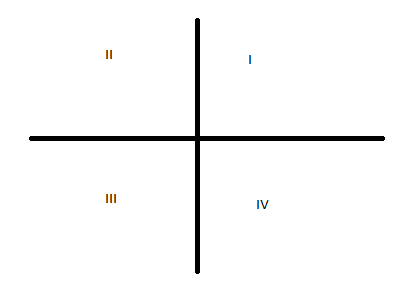Question
Question: If \[\dfrac{\pi }{2} < \theta < \dfrac{{3\pi }}{2}\], then the value of \[\sqrt {4{{\cos }^4}\theta ...
If 2π<θ<23π, then the value of 4cos4θ+sin22θ+4cotθcos2(4π−2θ) is
(A) 2sinθ
(B) −2sinθ
(C) 2cotθ
(D) −2cotθ
Solution
In this question, we have to evaluate the value of a given particular in the given region.
We need to first put the trigonometric formulas to bring it in a shorter form so that we can get a solution, then getting the square root of the square of the cosine function in given region we will get the negative of cosine then putting the algebraic and trigonometric formulas we will get the solution.
Formula used: Here we have used the algebraic formula,
(a+b)2=a2+2ab+b2.
The trigonometric formulas we have used,
cos(A−B)=cosAcosB+sinAsinB
sin2θ=2sinθcosθ
cotθ=sinθcosθ
Complete step-by-step answer:
We need to find out the values of 4cos4θ+sin22θ+4cotθcos2(4π−2θ).
Now,4cos4θ+sin22θ+4cotθcos2(4π−2θ)
Using the trigonometric formula,cos(A−B)=cosAcosB+sinAsinB,we get,
⇒4cos4θ+4sin2θcos2θ+4cotθ(cos4πcos2θ+sin4πsin2θ)2
Putting the value of cos4π=21 , sin4π=21, we get,
⇒4cos4θ+4sin2θcos2θ+4cotθ(21cos2θ+21sin2θ)2
Since, 2π<θ<23π, θ is in second or third quadrant so the value of cosθ is negative.
Thus, cos2θ=−cosθ, we get,
⇒−2cosθcos2θ+sin2θ+4cotθ21(cos2θ+sin2θ)2
Using the algebraic formula,(a+b)2=a2+2ab+b2
⇒−2cosθ+2cotθ(cos22θ+sin22θ+2cos2θsin2θ)
Using the trigonometric formula, sin2θ=2sinθcosθ
⇒−2cosθ+2cotθ(1+sinθ)
Using the formula, cotθ=sinθcosθ
⇒−2cosθ+2cotθ+2sinθcosθsinθ
Cancelling the term sinθ in numerator and denominator we get,
⇒−2cosθ+2cotθ+2cosθ
Simplifying we get,
⇒2cotθ
Hence we get, 4cos4θ+sin22θ+4cotθcos2(4π−2θ)=2cotθ in 2π<θ<23π.
∴Thus (C) is the correct option.
Note:

In the first quadrant (0 to 2π) all trigonometric functions are positive, in second quadrant (2π to π) only sine function is positive, and in third quadrant (π to 23π) tangent function is positive, in fourth quadrant (23π to 2π) cosine functions are positive.
Thus if 2π<θ<23π then θ lies between second and third quadrant where the value of cosine function is negative. Therefore we get the square root of the cosine square function as negative of the cosine function.
We know that cotangent function is given by dividing cosine function by sine function.
